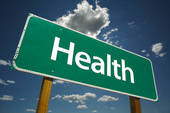Acne is not caused by chocolate, neither is it caused by dirty hair or dirty skin, nor by too much or lesser sex. Acne, actually, runs in the family. Maybe itshereditary in nature, an inherited defect of the pores or it may be not. It is generally said that If your parents suffered from severe acne then the chances of getting acne among your siblings are quite high. Four out of five siblings are most likely to suffer from acne. Also be cautious about other factors that could most likely lead to the outbreak of acne. The worst thing about acne is that it can leave acne scars behind. There are a number of treatments such as medications and cosmetic products available which claim to cure acne. But the fact is that acne cannot be cured but it can be prevented by taking proper care.
For the treatment of acne, home remedies are the best option, as the medications and cosmetic products are usually associated with certain side effects. Yogurt is found to be effective in the treatment of acne. There are a number of ways of using yogurt for treating acne. You can either consume it or use it as topical. But the severity of using it topically is still controversial. Let’s take a look at the ways yogurt can be used for the treatment:
Yogurt Used as Face Mask
Ingredients: Yoghurt, Comfrey leaves, honey, cosmetic clay, etc.
Method: Take one tablespoon of yogurt, 1 tablespoon of comfrey leaves, one tablespoon of honey and one tablespoon of cosmetic clay. Now to make the paste, first of all grind the comfrey leaves into fine powder. Mix all the ingredients together in a small bowl forming a paste. Set it aside and wash your face with a cleanser. Now apply the paste on to your face. Leave it on your face for about 15-20 minutes. In the meanwhile, lie down and relax as stress can also lead to the outbreak of acne. Relieving stress in itself is a great home remedy for treating acne. After about 15 minutes, take a washcloth, wet it in warm water and wipe it out. Apply a good amount of sunscreen moisturizer.
Yogurt for Acne Scars
The methods given here for applying yogurt are all natural and thus do not have any side effects. A word of caution is that before you start with the method of preparation and application makes sure that your hands and face are properly washed. Now take the yogurt and mix it properly. In most cases you must have often noticed that the fruit in the yogurt often sits at the bottom of the bowl. Once properly mixed, apply the paste on the face spreading evenly emphasizing on the older scars as well. Leave it on for about 5-10 minutes and then rinse it with clear water.
As such there is no definite cure for acne. What we can do at best is try to prevent it by taking extra care of our skin and the food that we eat. If your skin is dry then take extra care of it. Always stay out of sun whenever possible. And also use one treatment at a time otherwise your skin might react to it.
If the acne is mainly due to hormonal imbalance, then you may have to consult a physician. For such a condition, you may be prescribed withaldactone to treat acne. If you are on with this medication there are a couple of things you must be aware of as there are a number of side effects involved with its use.
Source: health.top54u.com





